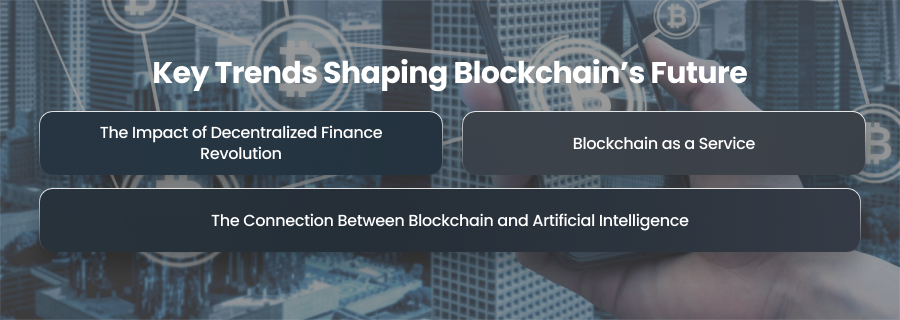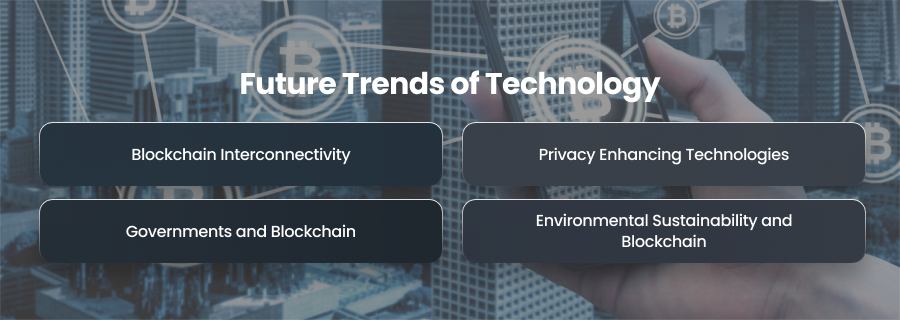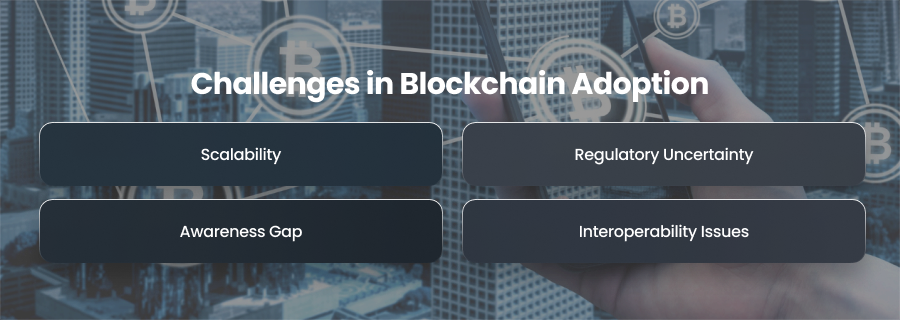Originally associated only with cryptocurrencies, blockchain has found its application in various spheres of our daily existence including finance, healthcare, SCM, and even governance. They have evolved into a tool that is usable across industries and has become mature.
CodingCops today will unfold the major trends that will reshape the future of decentralized systems, the challenges they will face, and the opportunities waiting on the way.
So, let’s start!
Blockchain – An Understanding
Blockchain is a DLT that makes certain that the stored data is secure, resistant to alteration, and transparent. Unlike the centralized system that is common with most of the current database systems, blockchain is a decentralized system that stores information in nodes. This structure makes it hard for cheaters to manipulate and it also creates trust among the participant.
Key Trends Shaping Blockchain’s Future

The Connection Between Blockchain and Artificial Intelligence
Blockchain is a great technology that can be used with artificial intelligence. AI is data-driven, and blockchain is a perfect solution to store and transfer data securely. This integration is particularly transformative in:
- Healthcare: Blockchain can protect patient data to be used by AI algorithms to improve the diagnostic process.
- Finance: Blockchain can provide confirmation to AI-based fraud detection procedures, thereby maintaining reliability.
The Impact of Decentralized Finance Revolution
DeFi has been a real revolution in the financial field. Such platforms eliminate intermediaries, which means that users can directly participate in activities such as lending, borrowing, and trading. With the continued development of user-friendly interfaces and new financial products, DeFi is expected to:
- Increase access to finance for the excluded groups.
- Promote innovation in peer-to-peer lending and insurance.
- Promote the use of stablecoins for daily use.
Blockchain as a Service
Blockchain is no longer confined to large-scale organizations with internal skills in the technology. Mainstream BaaS platforms provided by Microsoft, Amazon, and other companies allow companies of any size to implement blockchain solutions. These services simplify:
- Supply chain transparency for tracking.
- Usage of smart contracts by people who do not necessarily have to be programmers.
- The need to create blockchain solutions for a particular purpose within a business environment.
Transformations by Sector
Healthcare: Improving Data Security and Retrieval
Blockchain is expected to transform the healthcare sector due to problems that have plagued the sharing of data in the industry. The records of the patient are kept on the blockchains so that there is sharing of data between institutions and at the same time the data is not disclosed to the public. Additionally:
- There are ways in which drug supply chains can be protected from counterfeiting.
- Blockchain technology can be used to record data in clinical trials with transparency.
Supply Chain Management for Improving Traceability
Blockchain has been adopted by supply chain management to solve issues of inefficiency and fraud. Companies can use blockchain to:
- Monitor the source of products, to avoid purchasing them from unscrupulous dealers.
- Track deliveries in real-time to get the most accurate delivery time possible.
- Improve sustainability by documenting the amount of environmental influence exerted by your business.
Future Trends of Technology

Blockchain Interconnectivity
One of the most critical issues in the modern world is the isolation of blockchain networks. Interoperability solutions, like Polkadot and Cosmos, aim to bridge this gap by enabling:
- Inter-chain communication for both data and assets exchange.
- Single point of deployment for smart contracts to encourage more innovation.
- Additional solutions in terms of scalability by shifting extra load to secondary chains.
Privacy Enhancing Technologies
Although the information stored in a blockchain is public, there are still concerns about privacy since certain information is sensitive. The Zero-Knowledge Proofs are helpful in ensuring that a user can verify the details of a transaction without further details. This is critical for:
- Any exchange that involves the use of money and needs to be kept secret.
- Security measures for identification of users for access to services.
Governments and Blockchain: A Complex Relationship
The use of blockchain is being considered by governments of countries while its drawbacks are being worked on. One of these is the creation of Central Bank Digital Currencies. These digital currencies aim to modernize monetary systems by:
- It is a way of facilitating cross-border payments that are faster and cheaper.
- The decrease in the usage of physical money.
- Improving accountability in fiscal expenditure by the government.
Environmental Sustainability and Blockchain
Blockchain’s sustainability problem, particularly PoW consensus mechanisms such as Bitcoin, has attracted significant attention. As sustainability takes center stage, the industry is responding with:
- Transition to Proof of Stake: Ethereum’s transition to PoS is a good example of how energy consumption can be brought down.
- Green blockchain initiatives: Some platforms such as Algorand are using renewable energy sources.
- Energy-efficient algorithms: Further studies on consensus mechanisms that provide a balance between security, performance, and sustainability remain ongoing.
Challenges in Blockchain Adoption

Along with a huge potential, there are certain challenges involved in using blockchain.
- Scalability
Current networks also have the problem of transaction congestion during peak traffic.
- Regulatory Uncertainty
Unclear legal frameworks are one of the reasons why companies hesitate to implement blockchain solutions.
- Awareness Gap
The public and businesses have a limited understanding of blockchain, which hinders its adoption.
- Interoperability Issues
Another challenge is the absence of standardization of the various networks that exist in organizations.
Opportunities of Blockchain for a Decentralized World
Blockchain offers vast opportunities for innovation and impact, including:
- Financial Inclusion: DeFi can help to bring banking to the unbanked population through the use of blockchain.
- Digital Identity Management: It is possible to have a secure digital identity to enable the individual to have control over data.
- Transparent Governance: Decentralized Autonomous Organizations allow them to make decisions collectively.
By providing proper investments in technology, education, and regulation, blockchain has the potential to become the key driver of global economic development and societal change.
Summary
The future of blockchain is promising. Blockchain technology is ready to transform industries, starting with the remaking of the financial systems through decentralized finance to enhancing the credibility of the healthcare and supply chain industries.
When the technology progresses, these issues will have to be solved: flexibility, expandability, and effects on the environment, and their compatibility. When implemented these innovations will help businesses, governments as well as individuals collectively chart the course for blockchain toward decentralization, sustainability, and inclusiveness.




